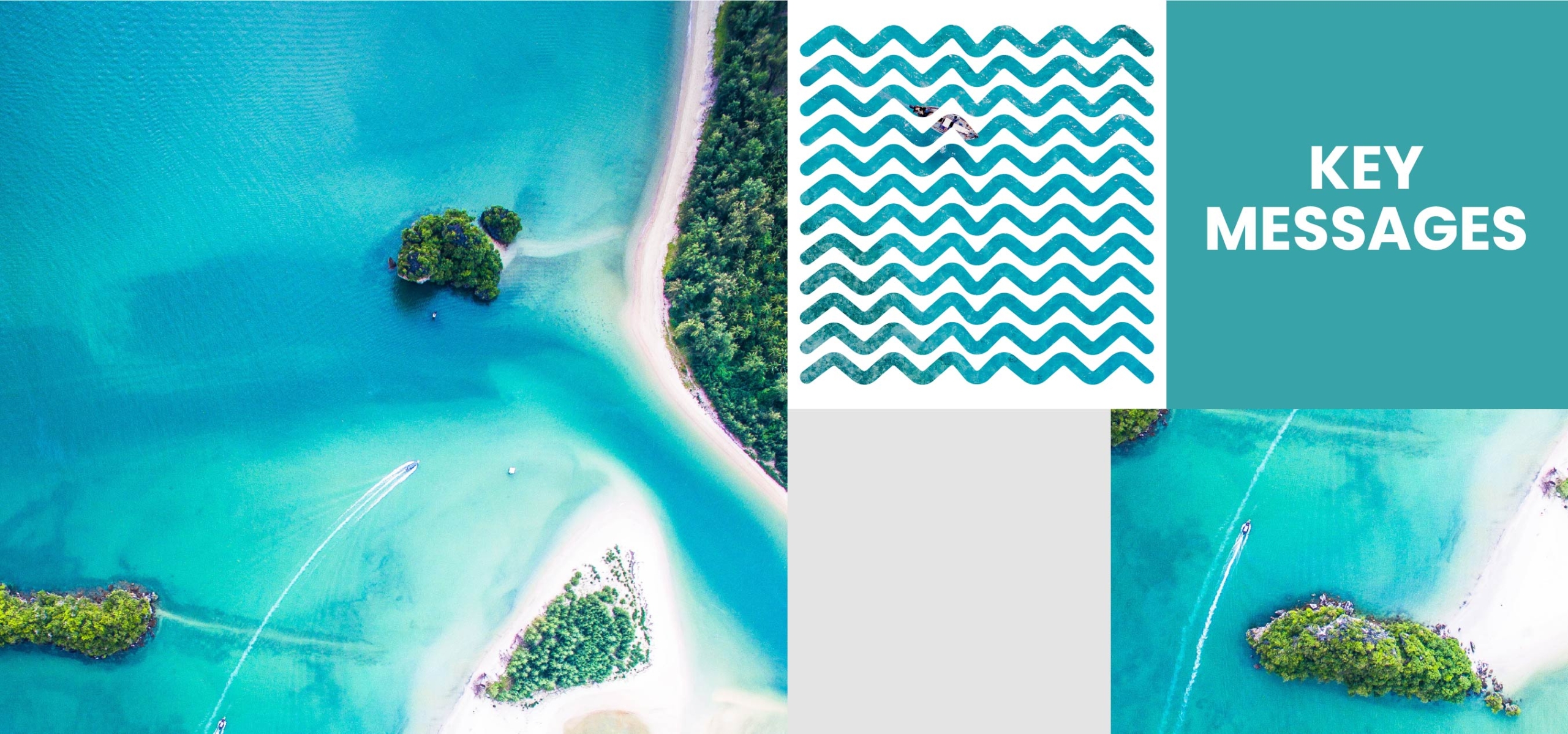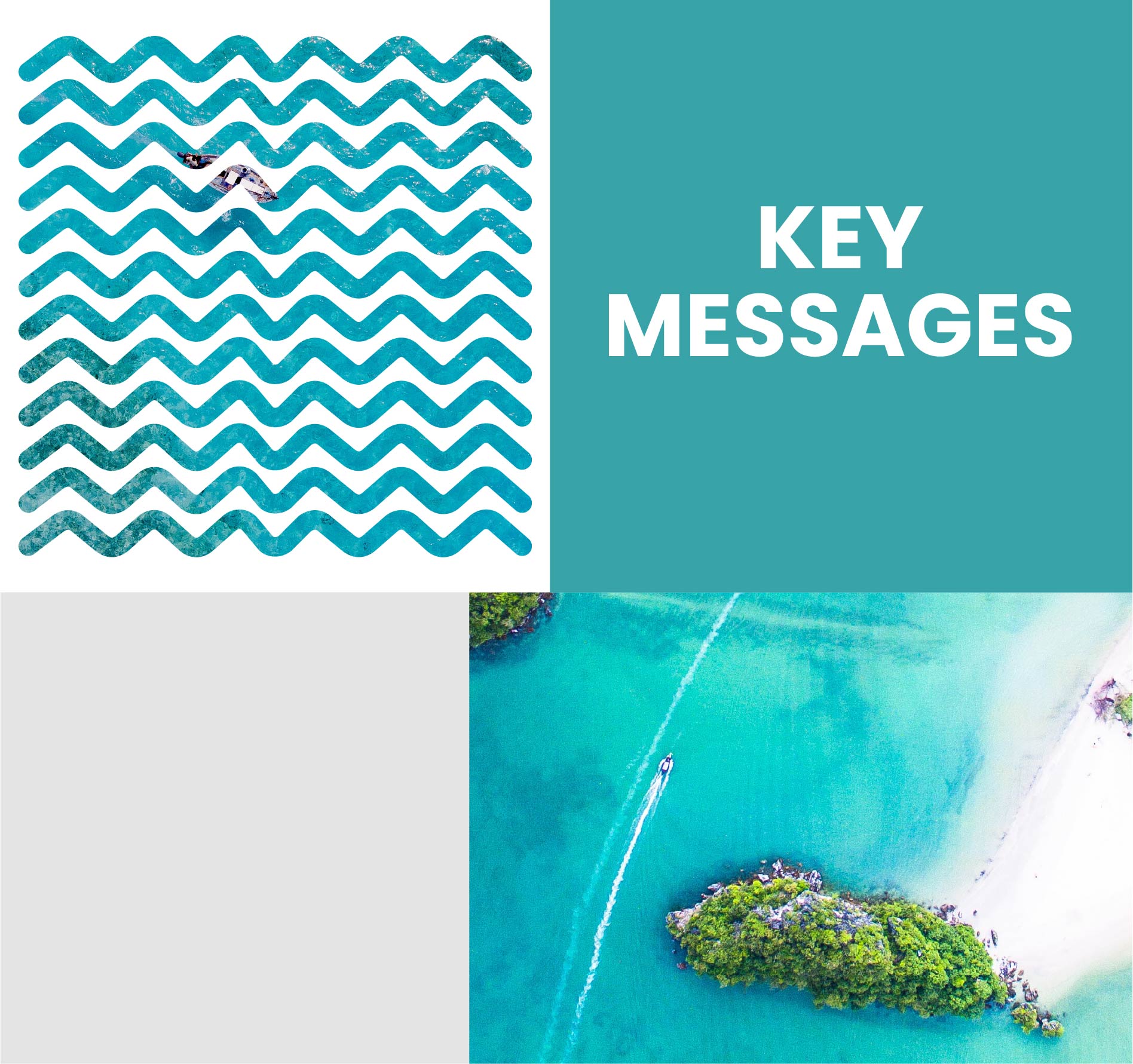KEY MESSAGES
GES4SEAS communication activities will focus on the following key messages.
1. HEALTHY SEAS FOR HEALTHY HUMAN SOCIETIES
Healthy seas provide resources and many benefits to human societies. Yet, the anthropogenic and natural threats to which the ocean is exposed compromise its capacity to provide such benefits. Researchers, marine users, decision-makers and citizens should join forces to provide current and future generations with heathy seas that support their needs.
2. PRESSURES IN THE MARINE ENVIRONMENT: 1 + 1 IS NOT ALWAYS 2
Human activities can alter the natural balance of our seas. The pressures from our activities and their impacts interact, making their effects sometimes synergistic, antagonistic or cumulative. When several pressures interact, the global effect can be even greater than the sum of their individual effects. Acknowledging and assessing the combined effects of pressures is key to inform decision-makers and protect our seas.
3. GOOD ENVIRONMENTAL STATUS AND HOW IT CAN AFFECT YOUR HEALTH / LIFE
The environmental status of an ecosystem is determined by its structure and functioning. Achieving the so-called Good Environmental Status (GES) implies that despite the presence of human activities, the ecosystem structure, functioning, and biodiversity are maintained at levels that ensure their continuity and integrity, with the capacity to deliver services and benefits for future generations. How to integrate the available information for different ecosystem components, descriptors, and habitats, how to interpret the results, and how to identify the cascading effects into the ecosystem services, is a challenge and a must.
4. TIPPING POINTS: WHY IT IS BEST NOT TO REACH THEM
The ocean is constantly changing as a result of human activities and the pressures that they generate. These pressures may affect the functioning of the system; yet it may be able to adapt or recover. However, when the impact is vast, these changes may become irreversible. This means that the tipping point has been reached.
5. ECOSYSTEM-BASED MANAGEMENT: MANAGING THE WHOLE OR THE HOLE
Ecosystems are composed by different components that are connected to each other, including abiotic (non-living such as water, rocks, etc.) and biotic components (living organisms, including humans). Ecosystem-based management (EBM) acknowledges these connections, as well as integrates the socio-economic dimension, to provide a better understanding of the combined effects of multiple pressures, informing decision-makers to achieve regulatory compliance and global sustainability goals.
6. OCEAN OPTIMISM: HOPE FOR THE OCEAN AND SOCIETIES
Despite the fact that the seas are facing important challenges, the management measures that have been taken over the past decades have helped to revert some negative trends, helping biodiversity, environmental quality, functioning and/or ecosystem services in some places. Projects like GES4SEAS can contribute to this optimistic view, providing pragmatic and adaptative tools, applying the EBM approach, and guiding policy- and decision-makers.


